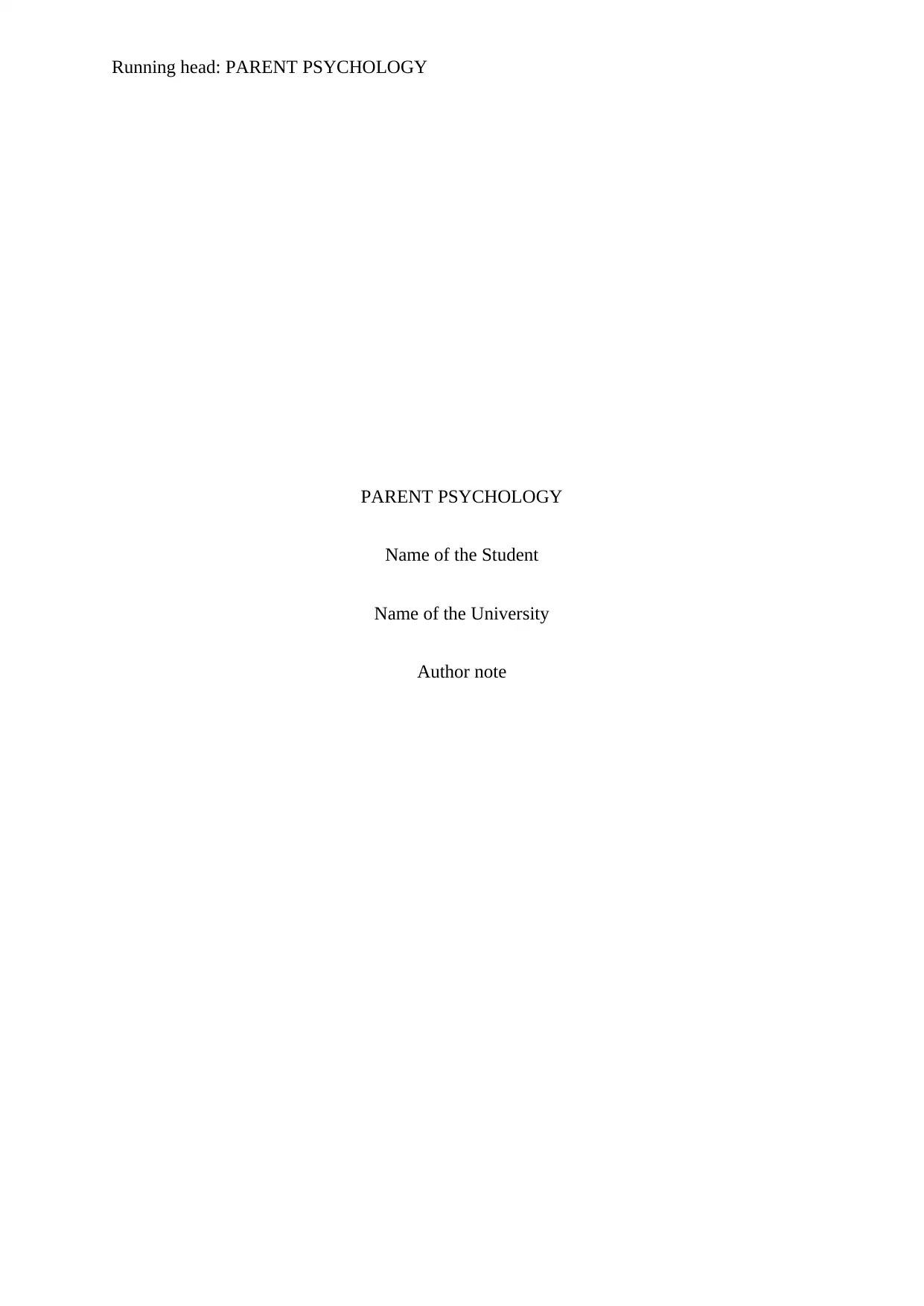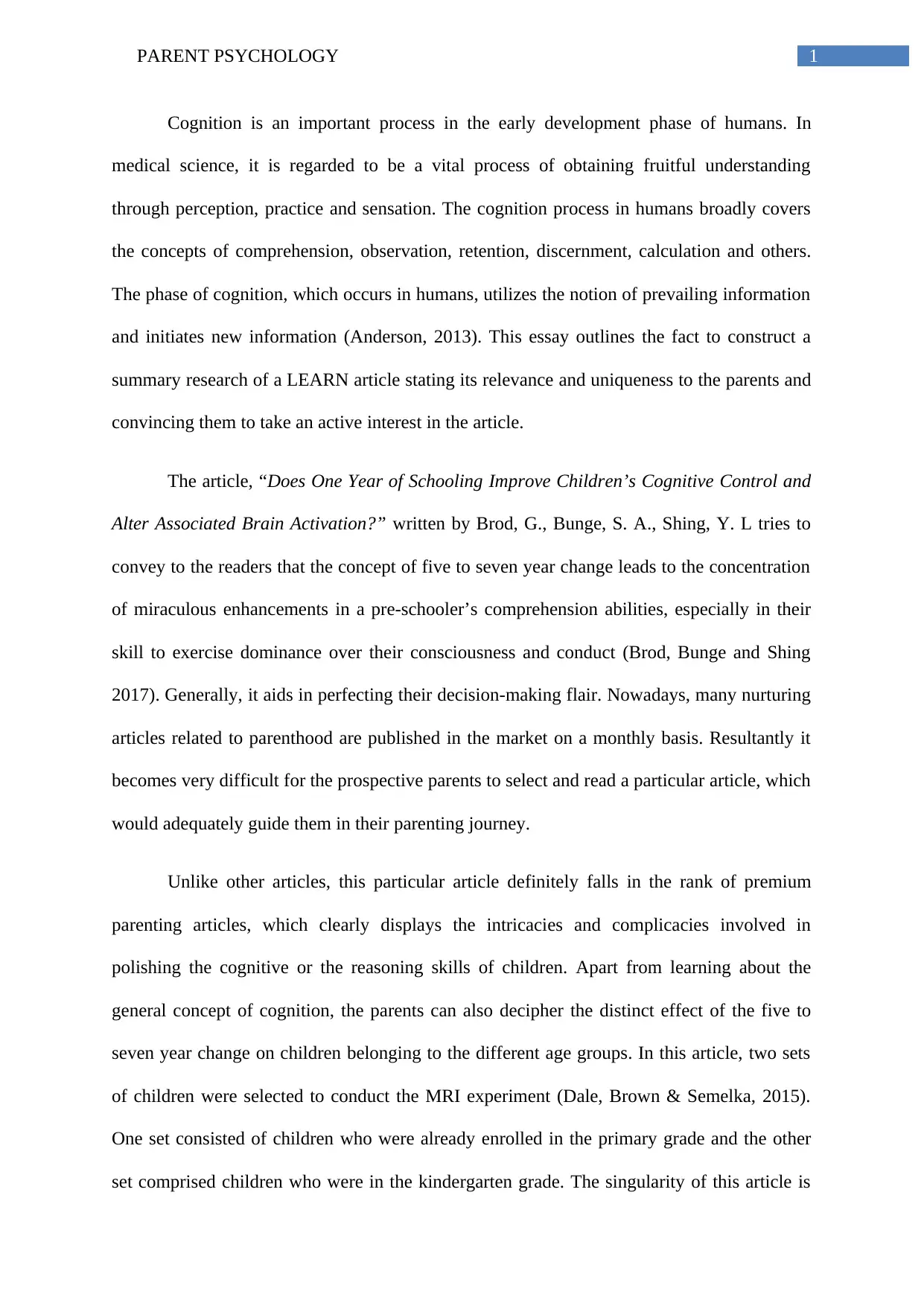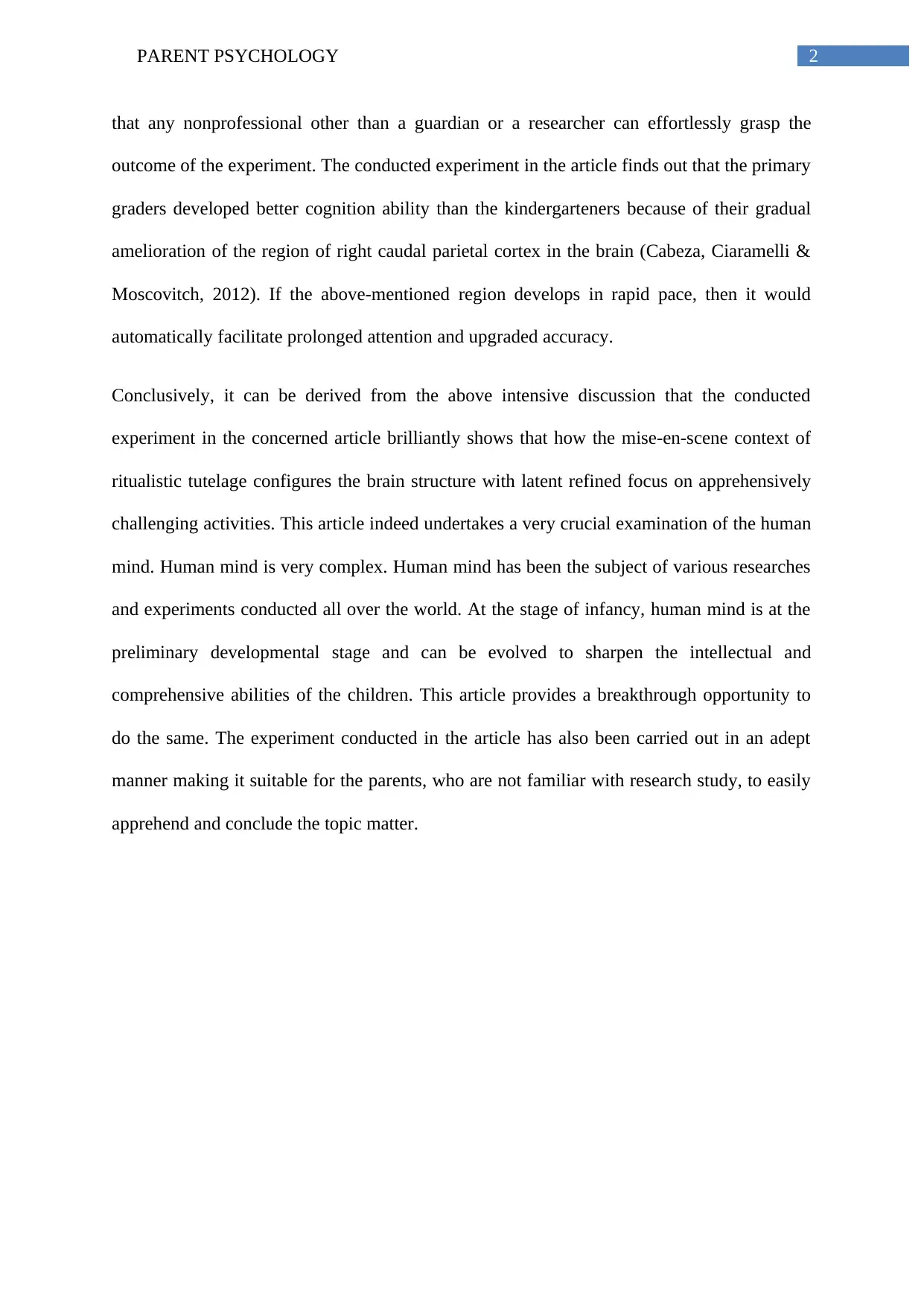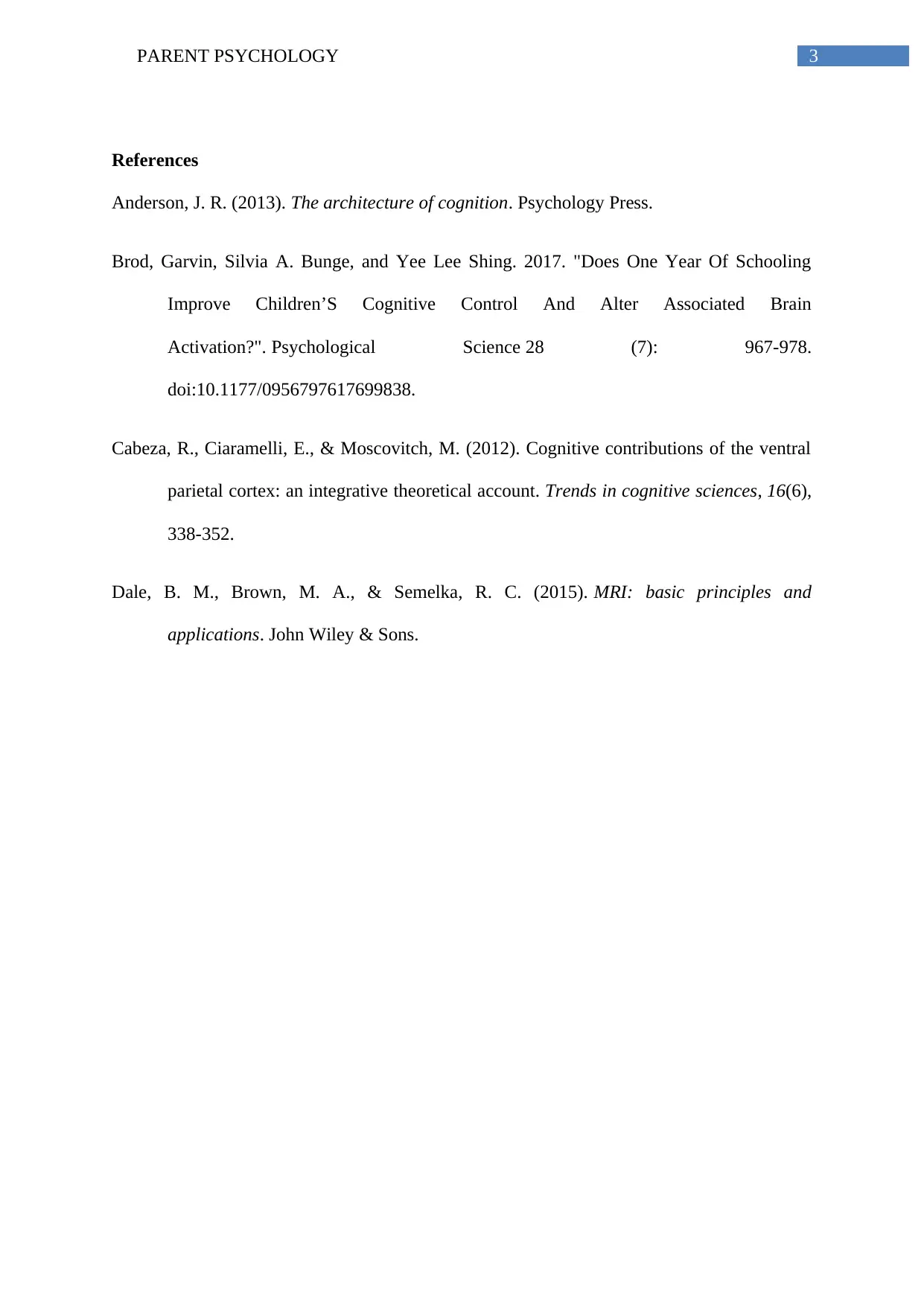PSYCH 211 - Schooling & Cognitive Skills: A Parent-Friendly Summary
VerifiedAdded on 2023/06/15
|4
|789
|406
Report
AI Summary
This report summarizes a LEARN article by Brod, Bunge, and Shing (2017) that investigates the impact of schooling on children's cognitive control and associated brain activation. The article highlights the significant cognitive enhancements observed in preschoolers aged five to seven, particularly in their ability to exercise dominance over consciousness and conduct, ultimately improving their decision-making skills. The study involved MRI experiments on two groups of children—primary graders and kindergarteners—revealing that primary graders exhibited better cognition due to the development of the right caudal parietal cortex region in the brain, which facilitates prolonged attention and upgraded accuracy. The report emphasizes the article's accessibility to non-professionals, making it a valuable resource for parents seeking to understand how formal education shapes brain structure and cognitive abilities, offering a breakthrough opportunity to sharpen children's intellectual and comprehensive skills.
1 out of 4








![[object Object]](/_next/static/media/star-bottom.7253800d.svg)